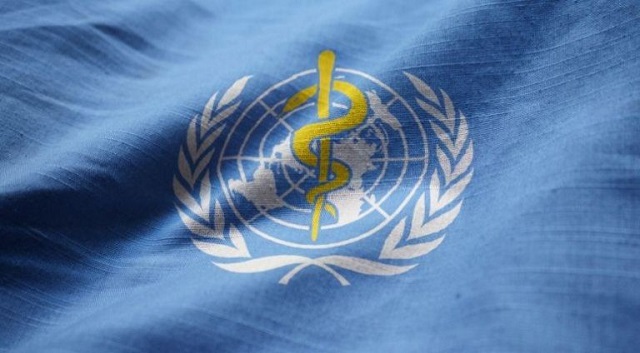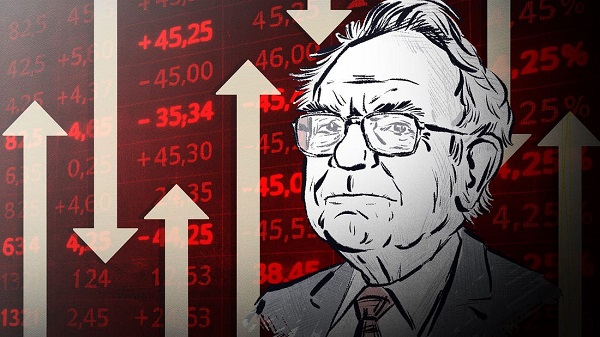Brownstone Institute
The Cure for Vaccine Skepticism

From the Brownstone Institute
By
The only way to restore public trust in vaccination – which has taken a big hit since the lies attending the rollout of the Covid-19 vaccine – is to put a well-known vaccine skeptic in charge of the vaccine research agenda. The ideal person for this is Robert F. Kennedy, Jr., who has been nominated to lead the Department of Health and Human Services.
At the same time, we must put rigorous scientists with a proven track record of evidence-based medicine in charge of determining the type of study designs to use. Two ideal scientists for this are Dr. Jay Bhattacharya and Dr. Marty Makary, who have been nominated to lead the NIH and FDA, respectively.
Vaccines are – along with antibiotics, anesthesia, and sanitation – one of the most significant health inventions in history. First conceived in 1774 by Benjamin Jesty, a farmer in Dorsetshire, England, the smallpox vaccine alone has saved millions of lives. Operation Warp Speed, which rapidly developed the Covid vaccines, saved many older Americans. Despite this, we have seen a sharp increase in general vaccine hesitancy. Vaccine scientists and public health officials who did not conduct properly randomized trials made false claims about vaccine efficacy and safety and established vaccine mandates for people who did not need the vaccines, sowing suspicion and damaging public trust in vaccination.
What went wrong? The purpose of the Covid vaccines was to reduce mortality and hospitalization, but the randomized trials were only designed to demonstrate short-term reduction in Covid symptoms, which is not of great public health importance. Since the placebo groups were promptly vaccinated after the emergency approval, they also failed to provide reliable information about adverse reactions. Despite these flaws, it was falsely claimed that vaccine-induced immunity is superior to natural infection-acquired immunity and that the vaccines would prevent infection and transmission.
Governments and universities then mandated the vaccines for people with superior natural immunity and for young people with very low mortality risk. These mandates were not only unscientific but with a limited vaccine supply, it was unethical to vaccinate low-mortality-risk people when the vaccines were needed by older high-risk people around the world.
Since government and pharmaceutical companies lied about the Covid vaccine, are they also lying about other vaccines? Skepticism has now spread to tried-and-true vaccines that are proven to work.
And there are real, unanswered vaccine safety questions. Seminal work from Denmark has shown that vaccines can have both positive and negative non-specific effects on non-targeted diseases, and that is something that must be explored in greater depth. Vaccine Safety Datalink (VSD) scientists studying asthma and aluminum-containing vaccines concluded that while their “findings do not constitute strong evidence for questioning the safety of aluminum in vaccines…additional examination of this hypothesis appears warranted.”
While VSD and other scientists should continue to do observational studies, we should also conduct randomized placebo-controlled vaccine trials, as RFK has advocated. Since we have herd immunity for many diseases, such as measles, trials can be ethically conducted by randomizing the age of vaccination to, for example, one versus three years old, while spreading the trial over a large geographical area so that the unvaccinated are not all living close to each other.
I am confident that most vaccines will continue to be found safe and effective. While some problems may be found, that is more likely to increase rather than decrease vaccine confidence. For instance, it was found that the measles-mumps-rubella-varicella (MMRV) vaccine causes excess febrile seizures in 12- to 23-month-old children. MMRV is now only given as a second dose to older children, while the younger kids get separate MMR and varicella vaccines, resulting in fewer vaccine-induced seizures that scare parents. Although safety studies were inconclusive, it was also wise to remove mercury from vaccines. Even if we end up with fewer vaccines in the recommended vaccine schedule, that’s not necessarily a terrible thing. Scandinavia has a very healthy population with fewer vaccines in their schedules.
We won’t restore vaccine confidence by preaching to the choir. After the Covid debacle, Kennedy’s stated goal is to return to evidence-based medicine free from conflicts of interest. Letting him do that is the only way that skeptics will trust vaccines again, and those of us who trust vaccines have no reason to be afraid of that.
Attempts by the public health and pharma establishments to derail the nominations of RFK, Bhattacharya, and Makary are the surest way to further increase vaccine hesitancy in America. The choice is stark. We cannot let lopsided “pro-vaccine scientists” who clamp their hands over their ears at the mildest questions do any more harm to vaccine confidence. As a pro-vaccine scientist, and in fact, the only person ever being fired by the CDC for being too pro-vaccine, the choice is clear in my mind. To restore vaccine confidence to previous levels, we must support the nominations of Kennedy, Bhattacharya, and Makary.
Republished from RealClearPolitics
Brownstone Institute
RCMP seem more interested in House of Commons Pages than MP’s suspected of colluding with China

From the Brownstone Institute
By
Canadians shouldn’t have information about their wayward MPs, but the RCMP can’t have too much biometric information about regular people. It’s always a good time for a little fishing. Let’s run those prints, shall we?
Forget the members of Parliament who may have colluded with foreign governments. The real menace, the RCMP seem to think, are House of Commons pages. MPs suspected of foreign election interference should not be identified, the Mounties have insisted, but House of Commons staff must be fingerprinted. Serious threats to the country are hidden away, while innocent people are subjected to state surveillance. If you want to see how the managerial state (dys)functions, Canada is the place to be.
In June, the National Security and Intelligence Committee of Parliamentarians (NSICOP) tabled its redacted report that suggested at least 11 sitting MPs may have benefitted from foreign election interference. RCMP Commissioner Mike Duheme cautioned against releasing their identities. Canadians remained in the dark until Oct. 28 when Kevin Vuong, a former Liberal MP now sitting as an Independent, hosted a news conference to suggest who some of the parliamentarians may be. Like the RCMP, most of the country’s media didn’t seem interested.
But the RCMP are very interested in certain other things. For years, they have pushed for the federal civil service to be fingerprinted. Not just high security clearance for top-secret stuff, but across government departments. The Treasury Board adopted the standard in 2014 and the House of Commons currently requires fingerprinting for staff hired since 2017. The Senate implemented fingerprinting this year. The RCMP have claimed that the old policy of doing criminal background checks by name is obsolete and too expensive.
But stated rationales are rarely the real ones. Name-based background checks are not obsolete or expensive. Numerous police departments continue to use them. They do so, in part, because name checks do not compromise biometric privacy. Fingerprints are a form of biometric data, as unique as your DNA. Under the federal Identification of Criminals Act, you must be in custody and charged with a serious offence before law enforcement can take your prints. Canadians shouldn’t have information about their wayward MPs, but the RCMP can’t have too much biometric information about regular people. It’s always a good time for a little fishing. Let’s run those prints, shall we?
It’s designed to seem like a small deal. If House of Commons staff must give their fingerprints, that’s just a requirement of the job. Managerial bureaucracies prefer not to coerce directly but to create requirements that are “choices.” Fingerprints aren’t mandatory. You can choose to provide them or choose not to work on the Hill.
Sound familiar? That’s the way Covid vaccine mandates worked too. Vaccines were never mandatory. There were no fines or prison terms. But the alternative was to lose your job, social life, or ability to visit a dying parent. When the state controls everything, it doesn’t always need to dictate. Instead, it provides unpalatable choices and raises the stakes so that people choose correctly.
Government intrudes incrementally. Digital ID, for instance, will be offered as a convenient choice. You can, if you wish, carry your papers in the form of a QR code on your phone. Voluntary, of course. But later there will be extra hoops to jump through to apply for a driver’s licence or health card in the old form.
Eventually, analogue ID will cost more, because, after all, digital ID is more automated and cheaper to run. Some outlets will not recognize plastic identification. Eventually, the government will offer only digital ID. The old way will be discarded as antiquated and too expensive to maintain. The new regime will provide the capacity to keep tabs on people like never before. Privacy will be compromised without debate. The bureaucracy will change the landscape in the guise of practicality, convenience, and cost.
Each new round of procedures and requirements is only slightly more invasive than the last. But turn around and find you have travelled a long way from where you began. Eventually, people will need digital ID, fingerprints, DNA, vaccine records, and social credit scores to be employed. It’s not coercive, just required for the job.
Occasionally the curtain is pulled back. The federal government unleashed the Emergencies Act on the truckers and their supporters in February 2022. Jackboots in riot gear took down peaceful protesters for objecting to government policy. Authorities revealed their contempt for law-abiding but argumentative citizens. For an honest moment, the government was not incremental and insidious, but enraged and direct. When they come after you in the streets with batons, at least you can see what’s happening.
We still don’t know who colluded with China. But we can be confident that House of Commons staffers aren’t wanted for murder. The RCMP has fingerprints to prove it. Controlling the people and shielding the powerful are mandates of the modern managerial state.
Republished from the Epoch Times
Brownstone Institute
The WHO Cannot Be Saved

From the Brownstone Institute
By
If we were designing a new WHO now, no sane model would base its funding and direction primarily on the interests and advice of those who profit from illness. Rather, these would be based on accurate estimates of localized risks of the big killer diseases. The WHO was once independent of private interests, mostly core-funded, and able to set rational priorities. That WHO is gone.
The WHO was originally intended primarily to transfer capacity to struggling states emerging from colonialism and address their higher burdens of disease but lower administrative and financial capabilities. This prioritized fundamentals like sanitation, good nutrition, and competent health services that had brought long life to people in wealthier countries. Its focus now is more on stocking shelves with manufactured commodities. Its budget, staffing, and remit expand as actual country need and infectious disease mortality decline over the years.
While major gaps in underlying health equality remain, and were recently exacerbated by the WHO’s Covid-19 policies, the world is a very different place from 1948 when it was formed. Rather than acknowledging progress, however, we are told we are simply in an ‘inter-pandemic period,’ and the WHO and its partners should be given ever more responsibility and resources to save us from the next hypothetical outbreak (like Disease-X). Increasingly dependent on ‘specified’ funding from national and private interests heavily invested in profitable biotech fixes rather than the underlying drivers of good health, the WHO looks more and more like other public-private partnerships that channel taxpayer money to the priorities of private industry.
Pandemics happen, but a proven natural one of major impact on life expectancy has not happened since pre-antibiotic era Spanish flu over a hundred years ago. We all understand that better nutrition, sewers, potable water, living conditions, antibiotics, and modern medicines protect us, yet we are told to be ever more fearful of the next outbreak. Covid happened, but it overwhelmingly affected the elderly in Europe and the Americas. Moreover, it looks, as the US government now makes clear, almost certainly a laboratory mistake by the very pandemic industry that is promoting the WHO’s new approach.
Collaborating on health internationally remains popular, as it should be in a heavily interdependent world. It also makes sense to prepare for severe rare events – most of us buy insurance. But we don’t exaggerate flood risk in order to expand the flood insurance industry, as anything we spend is money taken from our other needs.
Public health is no different. If we were designing a new WHO now, no sane model would base its funding and direction primarily on the interests and advice of those who profit from illness. Rather, these would be based on accurate estimates of localized risks of the big killer diseases. The WHO was once independent of private interests, mostly core-funded, and able to set rational priorities. That WHO is gone.
Over the past 80 years, the world has also changed. It makes no sense now to base thousands of health staff in one of the world’s most expensive (and healthiest!) cities, and it makes no sense in a technologically advancing world to keep centralizing control there. The WHO was structured in a time when most mail still went by steamship. It stands increasingly as an anomaly to its mission and to the world in which it works. Would a network of regional bodies tied to their local context not be more responsive and effective than a distant, disconnected, and centralized bureaucracy of thousands?
Amidst the broader turmoil roiling the post-1945 international liberal order, the recent US notice of withdrawal from the WHO presents a unique opportunity to rethink the type of international health institution the world needs, how that should operate, where, for what purpose, and for how long.
What should be the use-by date of an international institution? In the WHO’s case, either health is getting better as countries build capacity and it should be downsizing. Or health is getting worse, in which case the model has failed and we need something more fit for purpose.
The Trump administration’s actions are an opportunity to rebase international health cooperation on widely recognized standards of ethics and human rights. Countries and populations should be back in control, and those seeking profit from illness should have no role in decision-making. The WHO, at nearly 80 years old, comes from a bygone era, and is increasingly estranged from its world. We can do better. Fundamental change in the way we manage international health cooperation will be painful but ultimately healthy.
-

 Alberta9 hours ago
Alberta9 hours agoBoreal forests could hold the key to achieving Canada’s climate goals
-

 Alberta1 day ago
Alberta1 day agoCanmore attempting to tax its way out of housing crisis
-

 Business1 day ago
Business1 day agoThe Oracle of Omaha Calls it a Career
-

 Automotive1 day ago
Automotive1 day agoCanada’s electric vehicle industry faces multiple threats
-

 Business8 hours ago
Business8 hours agoCarney’s cabinet likely means more of the same on energy and climate
-

 Economy5 hours ago
Economy5 hours agoCanada as an energy superpower would empower thousands of families for generations
-

 Addictions7 hours ago
Addictions7 hours agoNews For Those Who Think Drug Criminalization Is Racist. Minorities Disagree
-

 COVID-196 hours ago
COVID-196 hours agoFDA plans to require placebo trials before approving COVID boosters for healthy people





